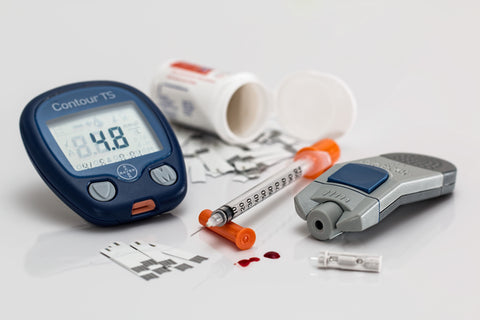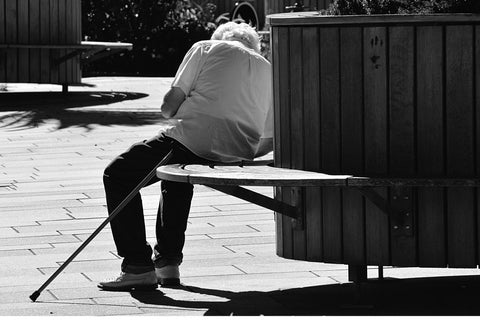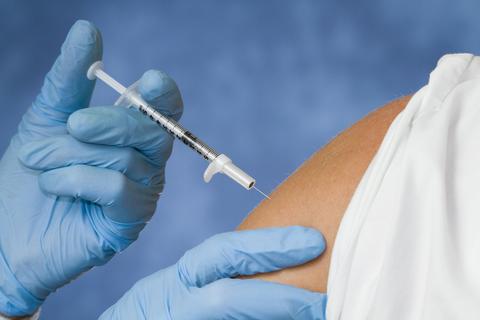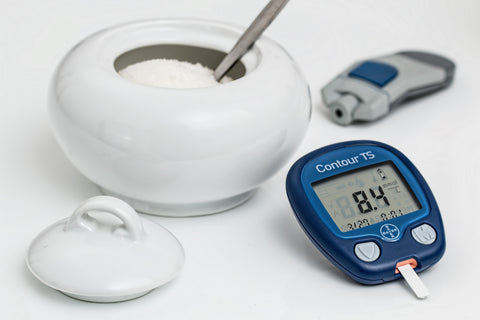on US orders over $100
on all US orders over $100

We're a week past Thanksgiving, and most of us have spent that week eating leftovers, many particularly high in carbohydrates. This means a consistently high level of glucose, or blood sugar. For some of us, this state is all too common, and eventually our cells may become resistant to the effects of insulin, which allows for processing glucose, lowering blood sugar levels. This may lead to the development of Type 2 diabetes.
One of the more common complications from diabetes is hypoglycemia, low blood sugar, which can not only impair functioning, but also be dangerous if left untreated. And in rare cases, hypoglycemia also has other causes. In all cases, low blood sugar is not a disease in the way diabetes is; it is a symptom or indicator of other health problems.

Diabetes and its regulation are the primary causes of hypoglycemia, as too much insulin or diabetes medication can cause a precipitous drop in blood sugar. This can also occur if you exercise more often than usual or eat less than usual following taking a diabetes medication. Eating later than usual, missing meals or snacks, or eating meals with many simple sugars can also prompt a hypoglycemic episode.
Other causes of hypoglycemia are rarer, and may include:
These conditions are rare, and after taking care of the immediate effects of low blood sugar, the important thing to remember is that it's a symptom of something potentially more serious. Always speak to a doctor following a hypoglycemic event.

The symptoms of low blood sugar are very noticeable, but some, particularly its earlier effects, can be shared with other conditions. Notably some of them are not dissimilar from anxiety attacks. They can include:
Worse symptoms of hypoglycemia may include:
If you suspect you are experiencing a hypoglycemic episode, get treatment immediately. Unchecked, low blood sugar levels can lead to seizures and unconsciousness, which can cause falls, motor vehicle accidents, and potentially death.
After an episode, always speak to a doctor. Repeated hypoglycemic episodes can lead to hypoglycemia unawareness, where the body stops giving physical signs of low blood sugar. This is extremely dangerous.

As most cases of hypoglycemia are connected to diabetes, it's important to follow the diabetes management plan you have developed with your doctor. However, any changes in this plan can provoke low blood sugar episodes. New exercise plans, new medications, or a change in eating or medication schedules
Treating hypoglycemia in the moment is your immediate concern, and your priorities will be balancing your blood sugar level and ensuring you are safe from falls or other accidents. The important number to remember is 70, as in 70 milligrams per deciliter (mg/dL); this is the baseline level below which your blood sugar is too low. To restore your glucose level, you should:
High sugar foods will help in the short term, but foods with proteins and more complex carbohydrates will help maintain glucose levels over a longer period of time, and with more regulation.

Treating hypoglycemia is necessary, but even more effective is evaluating and monitoring your habits to prevent it. Here are some ways to do that:
Here at Mountainside Medical, we have many products to help prevent and treat hypoglycemic episodes, as well as to manage diabetes. Be sure to check them out at our website by clicking here, or by calling us at 1-888-687-4334 for more information!
Leave a comment